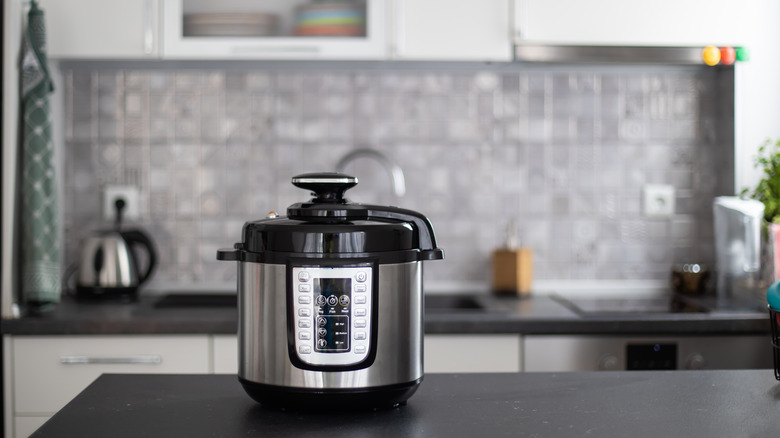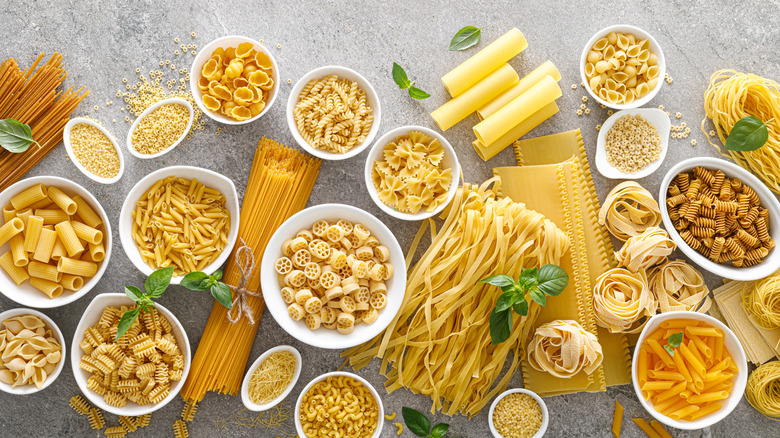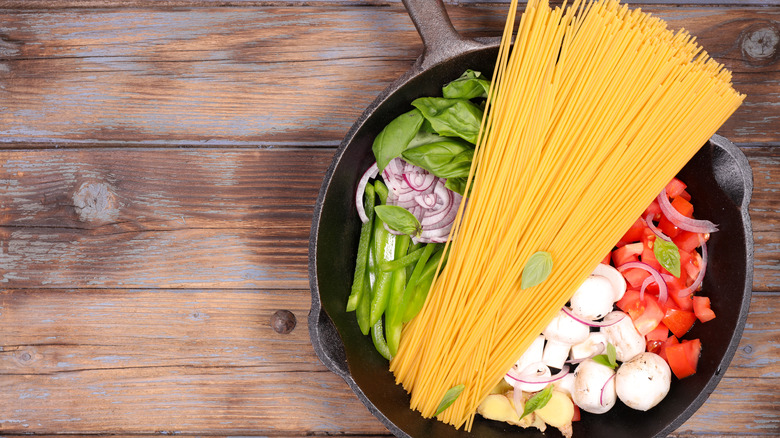Yes, You Can Definitely Cook Pasta In Your Rice Cooker
The beauty of owning a rice cooker is that it will effortlessly make perfect rice while you walk away and do other things in the kitchen. But no rule says that a rice cooker is good for making only rice. Any kind of grain is fair game for this handy appliance — polenta, farro, and even oatmeal can be made in a rice cooker. It can even tackle a batch of pasta.
Cooking pasta in a rice cooker is easy, but not entirely foolproof. You'll need to do a little measuring to make sure the pasta doesn't get overcooked, and the machine will need to be on the right setting. But with a little practice, you can have a pot of rotini or farfalle ready in no time, without standing over the stove. Once you start getting the hang of making pasta without boiling a big pot of water, you can let the machine do the work while you focus on making a tasty sauce or putting together a loaf of garlic bread.
Always measure the pasta and water
The most important rule to follow when making pasta in the rice cooker is to measure everything that goes into the pot. The first measurement is a no-brainer — make sure that your rice cooker can hold the amount of pasta you want to cook. Dried pasta will nearly double in size when it's cooked, so keep your machine's capacity in mind when you're planning dinner.
It's also important to measure the volume of water. You want to get the water-to-pasta ratio right. A good rule of thumb to follow is 1 ½ cups of water per 2 ounces of pasta. Once you have everything measured out, all you have to do is combine it all in the rice cooker pot, add a pinch or two of salt, then press the "start" or "cook" button. If you have a choice of different cooking methods, choose the "quick cook" setting for higher heat.
Make an entire meal in one pot
When making pasta in a rice cooker, you should stir your pasta a few times to keep it from sticking together. Do this after the water starts boiling. For the most part, however, you can keep your hands off and let the rice cooker do its thing. Rice cookers work by shutting off when the bottom of the pot increases in temperature, which happens when all of the water has been absorbed. (Because the temperature of boiling water is a constant 212 degrees Fahrenheit.) You can either check on your pasta periodically to see when it's al dente and drain it, or you can let the machine run until the switch flips off.
If you're going to make pasta in the rice cooker, you don't have to cook it with just water, either. The internet has endless one-pot pasta recipes, like one-pot spaghetti, where all of the ingredients are cooked together. A rice cooker is a perfect setup for many one-pot pasta recipes. All you need is sauce, water, and dried pasta. You can even add frozen meatballs. Next thing you know, your pasta dinner will be ready with no muss, no fuss.


